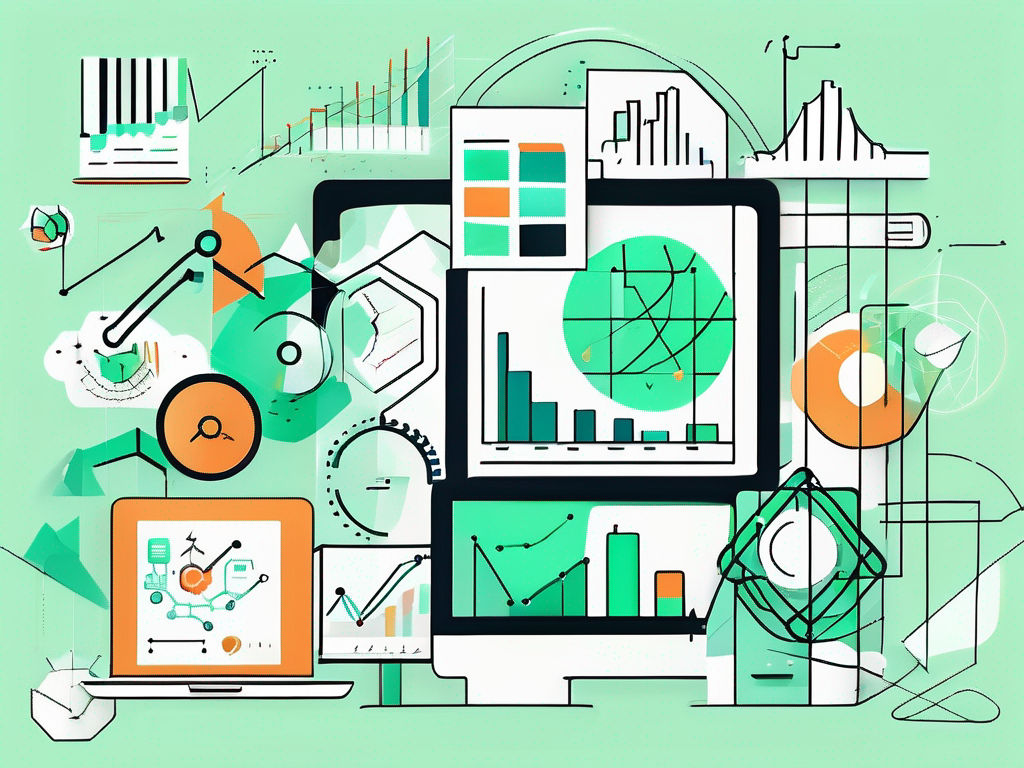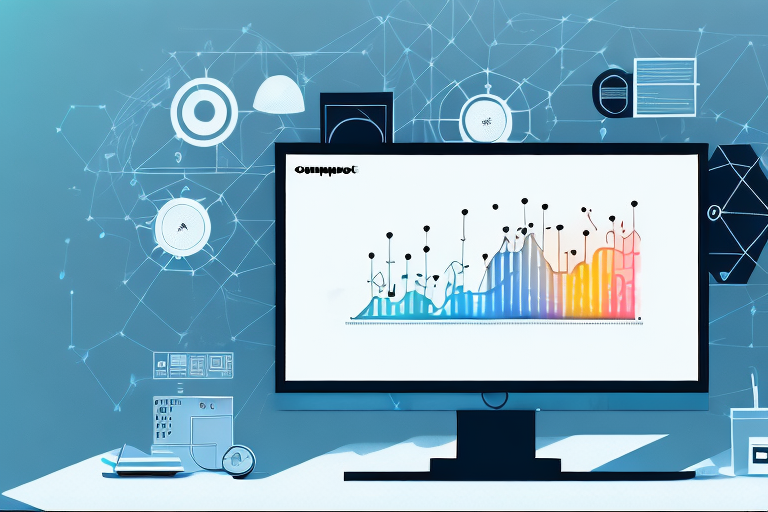.svg)
How AI Agents Drive Innovation in Pharmaceutical Research
.svg)

The pharmaceutical industry stands at the forefront of scientific innovation, constantly seeking new ways to enhance drug discovery, development, and delivery. In recent years, artificial intelligence (AI) agents have emerged as powerful tools that are transforming the landscape of pharmaceutical research. By harnessing the capabilities of AI, researchers are able to accelerate processes, reduce costs, and ultimately bring life-saving medications to market more efficiently. This exploration delves into the myriad ways AI agents are driving innovation within this critical field.
The Role of AI Agents in Drug Discovery
Accelerating the Drug Discovery Process
Drug discovery is traditionally a lengthy and costly endeavour, often taking years and billions of pounds to bring a new drug to market. AI agents are revolutionising this process by rapidly analysing vast datasets to identify potential drug candidates. Machine learning algorithms can sift through chemical libraries, genomic data, and biological pathways to predict how different compounds might interact with targets in the body. This capability significantly reduces the time required to identify promising molecules, allowing researchers to focus their efforts on the most viable candidates.
Enhancing Predictive Modelling
AI agents excel in predictive modelling, which is crucial for understanding how a drug will behave in the human body. By simulating complex biological systems, AI can predict the pharmacokinetics and pharmacodynamics of a drug, providing insights into its efficacy and safety profile. This predictive power not only aids in the design of more effective drugs but also helps in anticipating potential side effects, thereby improving patient safety and reducing the likelihood of costly late-stage failures.
Facilitating Personalised Medicine
Personalised medicine aims to tailor treatments to individual patients based on their genetic makeup, lifestyle, and environment. AI agents are instrumental in this approach by analysing genetic data to identify biomarkers that predict how a patient will respond to a particular treatment. This enables the development of targeted therapies that are more effective and have fewer side effects, marking a significant shift towards more personalised and precise healthcare solutions.
AI in Clinical Trials
Optimising Clinical Trial Design
Clinical trials are a critical phase in drug development, yet they are often fraught with challenges such as high costs, lengthy durations, and recruitment difficulties. AI agents can optimise trial design by identifying suitable patient populations, predicting enrolment rates, and even suggesting optimal trial locations. By leveraging AI, researchers can design more efficient trials that are better equipped to demonstrate a drug's efficacy and safety.
Improving Patient Recruitment and Retention
Recruiting and retaining participants for clinical trials is a significant hurdle. AI agents can analyse electronic health records and social media data to identify potential participants who meet the trial criteria. Furthermore, AI can personalise communication strategies to engage and retain participants, ensuring that trials are completed on time and within budget. This not only accelerates the trial process but also enhances the reliability of the results.
Enhancing Data Analysis and Interpretation
Clinical trials generate vast amounts of data that must be meticulously analysed to draw meaningful conclusions. AI agents can automate data analysis, identifying patterns and correlations that might be missed by human researchers. This capability allows for more accurate interpretation of trial results, facilitating faster decision-making and enabling researchers to pivot quickly if a trial is not meeting its endpoints.
AI in Drug Manufacturing and Supply Chain Management
Streamlining Manufacturing Processes
The manufacturing of pharmaceuticals is a complex process that requires precision and efficiency. AI agents can optimise production lines by predicting equipment maintenance needs, reducing downtime, and ensuring quality control. By analysing production data in real-time, AI can identify inefficiencies and suggest improvements, leading to cost savings and increased output.
Optimising Supply Chain Operations
The pharmaceutical supply chain is a global network that must operate seamlessly to ensure timely delivery of medications. AI agents can enhance supply chain management by predicting demand, optimising inventory levels, and identifying potential disruptions. This predictive capability allows companies to respond proactively to changes in the market, ensuring that patients have access to the medications they need without delay.
Ensuring Regulatory Compliance
Compliance with regulatory standards is paramount in the pharmaceutical industry. AI agents can assist in maintaining compliance by monitoring production processes and ensuring that all operations adhere to the required guidelines. By automating compliance checks, AI reduces the risk of human error and ensures that companies remain in good standing with regulatory bodies, avoiding costly fines and delays in product approval.
Challenges and Ethical Considerations
Data Privacy and Security
While AI offers numerous benefits, it also raises concerns about data privacy and security. The use of AI in pharmaceutical research involves handling sensitive patient data, which must be protected against breaches and misuse. Ensuring robust data encryption and implementing strict access controls are essential to maintaining patient confidentiality and trust.
Bias and Fairness in AI Algorithms
AI algorithms are only as good as the data they are trained on. If the training data is biased, the AI's predictions and recommendations may also be biased, leading to unfair treatment of certain patient groups. It is crucial to ensure that AI systems are trained on diverse datasets and regularly audited to identify and mitigate any biases, ensuring equitable healthcare outcomes for all patients.
Balancing Innovation with Regulation
The rapid pace of AI innovation often outstrips the ability of regulatory frameworks to keep up. Striking a balance between encouraging innovation and ensuring patient safety is a significant challenge. Regulators must work closely with industry stakeholders to develop guidelines that support the safe and effective use of AI in pharmaceutical research, fostering an environment where innovation can thrive without compromising patient welfare.
The Future of AI in Pharmaceutical Research
Emerging Trends and Technologies
The future of AI in pharmaceutical research is bright, with emerging technologies such as quantum computing and advanced machine learning techniques poised to further enhance drug discovery and development. These advancements hold the potential to unlock new insights into complex diseases, paving the way for groundbreaking treatments and cures.
Collaboration and Interdisciplinary Approaches
As AI continues to evolve, collaboration between AI experts, pharmaceutical researchers, and healthcare professionals will be essential. Interdisciplinary approaches that combine expertise from various fields will drive innovation and ensure that AI solutions are both technically sound and clinically relevant, ultimately benefiting patients worldwide.
AI as a Catalyst for Global Health
AI has the potential to be a catalyst for improving global health by making healthcare more accessible and affordable. By reducing the costs and time associated with drug development, AI can help bring new treatments to underserved populations, addressing health disparities and improving outcomes for patients around the world.
In conclusion, AI agents are playing a pivotal role in driving innovation within pharmaceutical research. By accelerating drug discovery, optimising clinical trials, enhancing manufacturing processes, and addressing ethical challenges, AI is transforming the way medications are developed and delivered. As technology continues to advance, the potential for AI to revolutionise the pharmaceutical industry is immense, promising a future where healthcare is more personalised, efficient, and accessible to all.
Related Posts
Let's
Let’s discuss how we can bring reinvigorated value and purpose to your brand.







.svg)